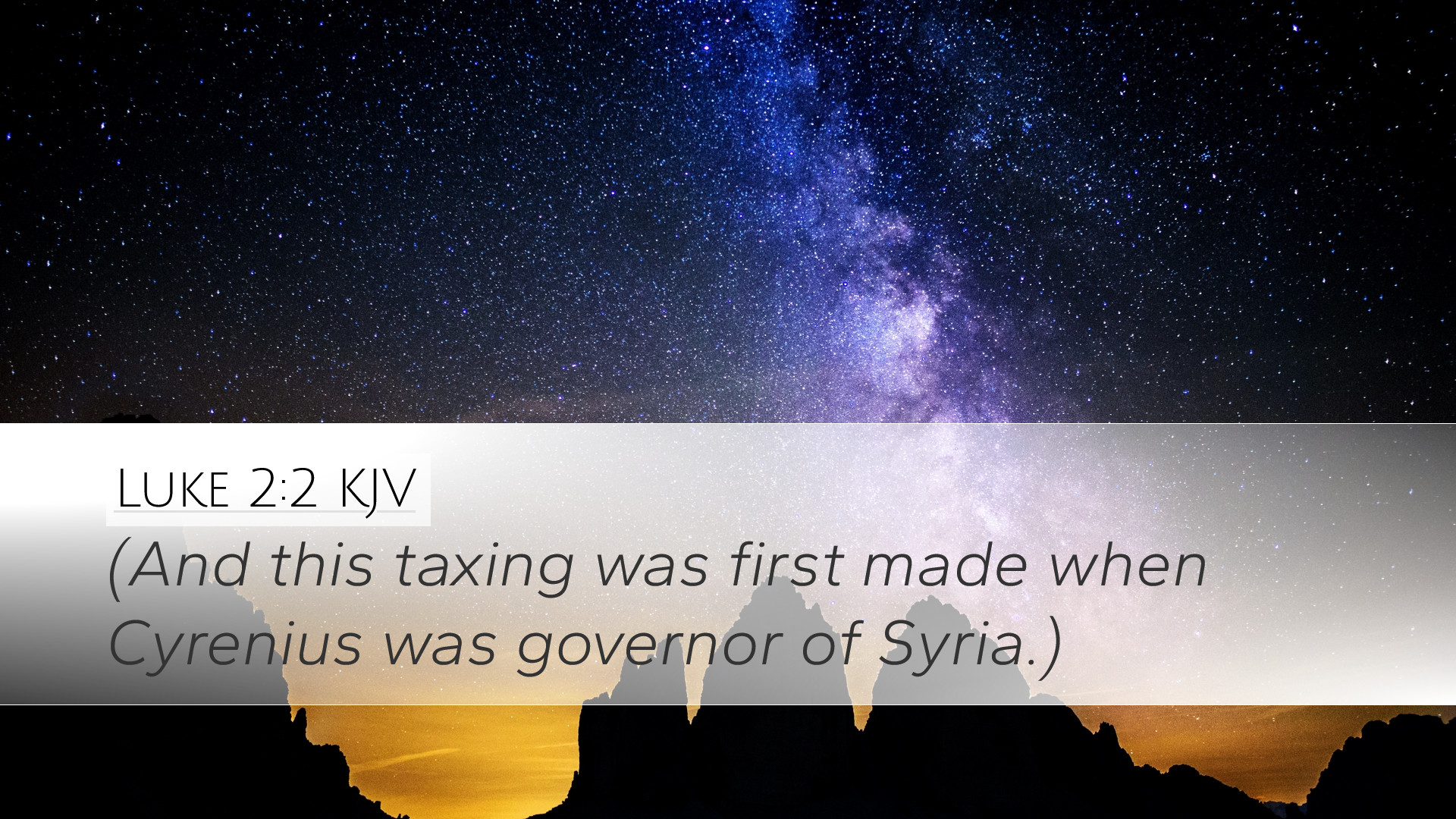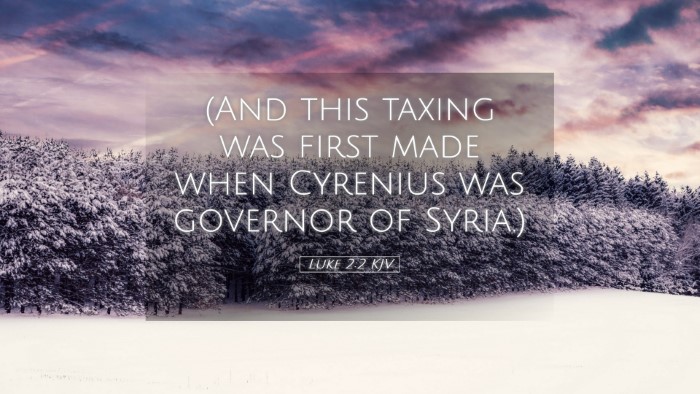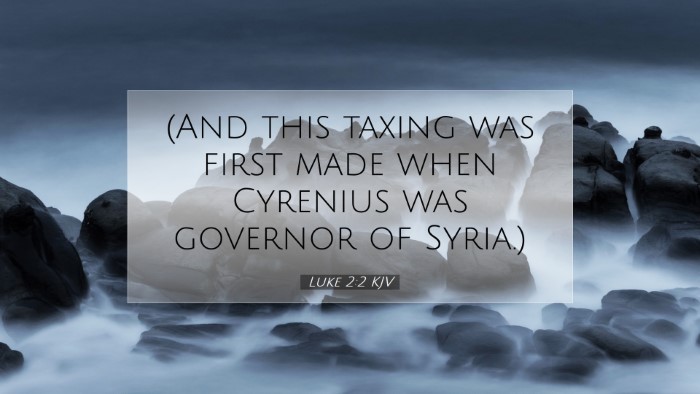Commentary on Luke 2:2
Verse: "This was the first registration when Quirinius was governor of Syria." (Luke 2:2, ESV)
Introduction
This verse provides a historical context for the birth of Jesus Christ, emphasizing the importance of the census conducted under Quirinius, the Roman governor of Syria. Throughout scripture, the intertwining of divine and historical realities is evident, creating a rich tapestry of fulfillment and prophecy.
Historical Context
The mention of Quirinius positions the birth narrative of Jesus within a specific historical frame, indicating the significance of the Roman Empire during this period. As noted by Matthew Henry, the census was a means by which Rome exercised control over its provinces and collected taxes. Henry elaborates that such registrations served to remind the people of their subjugation to Roman authority while simultaneously setting the stage for God's redemptive plan through Christ's incarnation.
Significance of the Census
1. Divine Sovereignty
Albert Barnes highlights that God orchestrated the timing of the census to fulfill prophetic scripture. Micah 5:2 foretold that the Messiah would be born in Bethlehem. The requirement for everyone to return to their ancestral towns for registration forced Joseph and Mary to travel to Bethlehem, thereby fulfilling this prophecy.
2. Fulfillment of Prophecy
This census served as a divine instrument for fulfilling the promise made to David that his lineage would bring forth the Messiah. As Adam Clarke notes, the correlation between the census and the location of Jesus' birth illustrates the meticulous nature of God's plan. Every detail in the narrative underscores God’s foresight and intentionality.
Social and Political Implications
1. Roman Authority
The act of registering for a census was more than a bureaucratic procedure; it represented the authority of Rome over its subjects. Matthew Henry comments on the humility that Jesus embraced by entering the world in such politically charged conditions. Rather than a king born in luxury, Jesus arrives in a context of oppression, signaling the nature of His kingdom which often upends worldly expectations.
2. Unity of Humanity
The census required everyone to be counted and thus created a sense of unity among the people, illustrating the shared experience of humanity. Albert Barnes suggests that this moment reflects God’s inclusiveness, as the Messiah enters a world marked by division and strife, bridging the gap between God and mankind.
Theological Reflections
1. God’s Timing
Reflecting on this verse, one observes the theme of God’s perfect timing. Adam Clarke emphasizes how human events can be manipulated by divine providence to bring about His purposes. The seemingly mundane administrative actions of a foreign power resulted in cosmic implications—Christ arrived at the appointed time.
2. The Incarnation
This simple registration heralds the profound mystery of the incarnation. Matthew Henry illustrates it as a moment where heaven and earth intersect, with the eternal Word taking on human flesh under extraordinary conditions. The humility of Jesus’ birth amidst the realities of empire is a powerful reminder that God's ways transcend human comprehensions.
Conclusion
Luke 2:2 serves as a pivotal reminder of the intersection between divine providence and historical events. The significance of the census highlights how God sovereignly uses even the decisions of worldly rulers to fulfill His eternal purposes. For pastors, theologians, and students, this verse underscores the richness of God's redemptive plan, emphasizing both the humility of Christ and the grand narrative of salvation.
Reflection Questions
- How does the historical context of this census influence our understanding of Christ's birth?
- In what ways does this verse challenge our perceptions of power and authority?
- What does the sequence of events surrounding this registration teach us about God's providence in our lives today?


